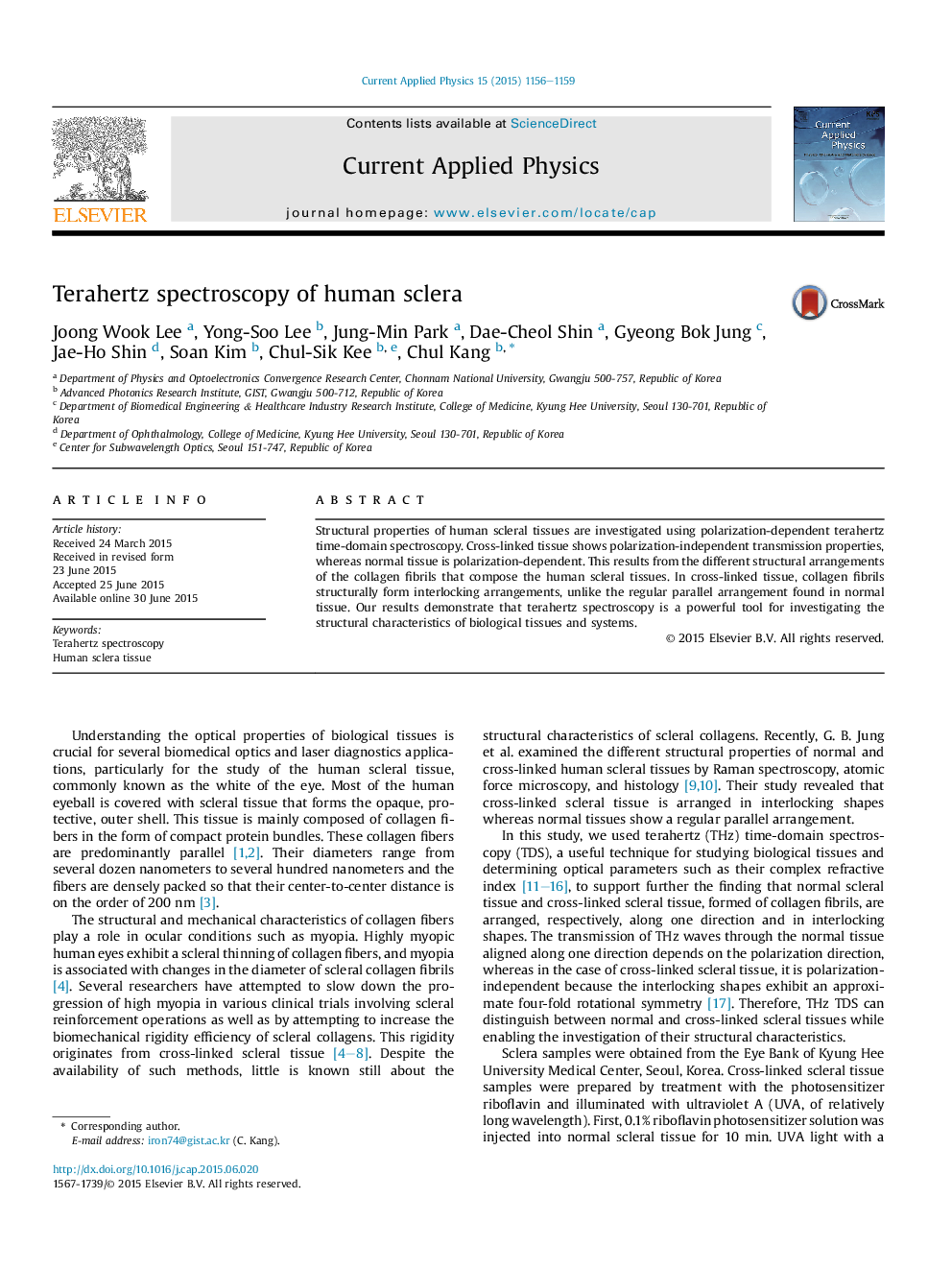| Article ID | Journal | Published Year | Pages | File Type |
|---|---|---|---|---|
| 1785626 | Current Applied Physics | 2015 | 4 Pages |
•We used polarization dependent THz spectroscopy.•Normal scleral tissue is polarization sensitive, but cross-linked tissue is not.•A simple theoretical modeling based on the Drude model was used.•Our study reveals that THz spectroscopy is a tool for studying biological tissues.
Structural properties of human scleral tissues are investigated using polarization-dependent terahertz time-domain spectroscopy. Cross-linked tissue shows polarization-independent transmission properties, whereas normal tissue is polarization-dependent. This results from the different structural arrangements of the collagen fibrils that compose the human scleral tissues. In cross-linked tissue, collagen fibrils structurally form interlocking arrangements, unlike the regular parallel arrangement found in normal tissue. Our results demonstrate that terahertz spectroscopy is a powerful tool for investigating the structural characteristics of biological tissues and systems.
